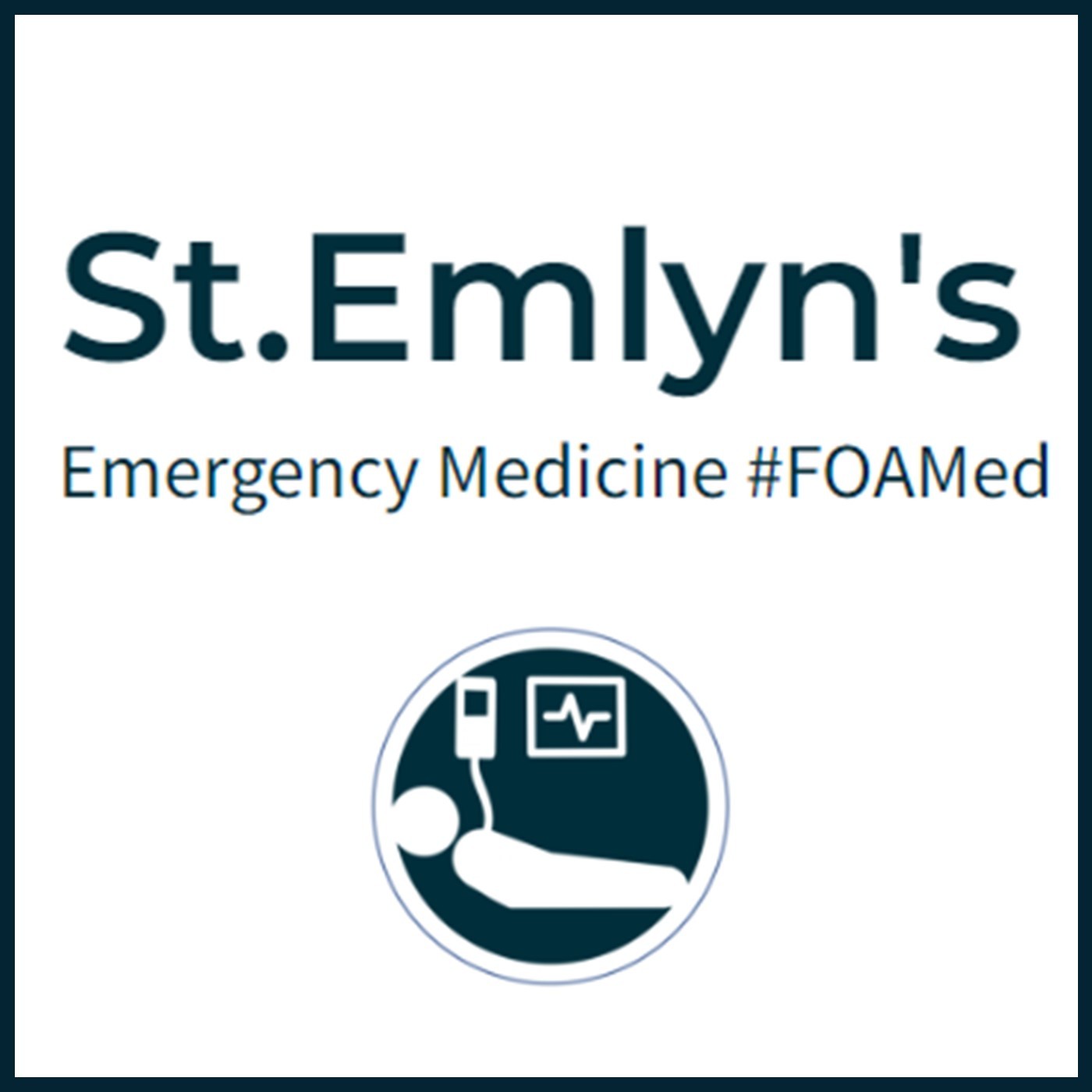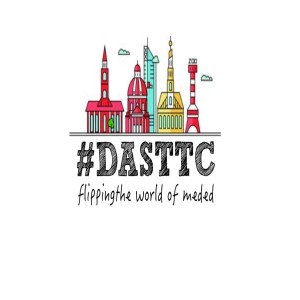
1.3M
Downloads
272
Episodes
A UK based Emergency Medicine podcast for anyone who works in emergency care. The St Emlyn ’s team are all passionate educators and clinicians who strive to bring you the best evidence based education. Our four pillars of learning are evidence-based medicine, clinical excellence, personal development and the philosophical overview of emergency care. We have a strong academic faculty and reputation for high quality education presented through multimedia platforms and articles. St Emlyn’s is a name given to a fictionalised emergency care system. This online clinical space is designed to allow clinical care to be discussed without compromising the safety or confidentiality of patients or clinicians.
Episodes

Friday Jun 23, 2017
Ep 93 - The Teaching Course Copenhagen Day 2
Friday Jun 23, 2017
Friday Jun 23, 2017
Summary of the St Emlyn’s Team's Educational Experience in Copenhagen
The St Emlyn’s team, comprising Simon Carley, Nathalie May, and Chris Nixon, recently conducted an in-depth teaching course in Copenhagen, focusing on medical education, simulation training, and learning theories. This blog post encapsulates the key insights and experiences from the event, offering valuable reflections for medical educators and practitioners.
Setting the Scene: The Importance of Copenhagen
Copenhagen provided an ideal setting for the course, which was designed to accommodate a range of interests through specialized sessions on simulation (SIM) and educational theories. The modular structure allowed participants to select sessions based on their professional needs, ensuring a dynamic and tailored learning experience.
Day 1: Establishing a Strong Foundation
The course began with a review of the previous day’s content, addressing participant questions and reinforcing key concepts through retrieval practice, spaced repetition, and testing. This review session, a rare but valuable practice, set a solid foundation by enhancing understanding and retention of the material.
Understanding Expertise in Medicine
Jesse led a session exploring the concept of expertise in medicine, challenging the traditional notion of expertise as purely individualistic. The discussion emphasized that true expertise often involves effective teamwork, particularly in complex fields like healthcare. The analogy of a football team highlighted that medical teams, like sports teams, thrive on diverse skill sets and collaboration rather than the prowess of a single individual. This perspective is crucial for fostering successful medical teams, where complementary skills are essential for optimal patient care.
The Role of Simulation in Medical Training
Simulation training was a central theme, with an emphasis on constructivist learning environments. Participants were encouraged to develop their own simulation scenarios, facilitating hands-on practice and learning from mistakes. This approach, while potentially risky for educators due to its open-ended nature, proved effective as participants met and exceeded learning objectives, discovering additional insights in the process.
The sessions also underscored the importance of aligning simulation exercises with clear, functional objectives. Authenticity in these exercises, regardless of equipment sophistication, ensures relevance to real-world medical situations, bridging the gap between theoretical knowledge and practical application.
Beyond Crisis Resource Management (CRM)
While Crisis Resource Management (CRM) remains a key component of team training in medicine, the course explored additional methods such as stress inoculation training and cross-training. These methods expand team members' understanding of each other's roles and improve overall team performance. By diversifying training approaches, medical professionals can be better prepared for various high-pressure scenarios.
The Critical Role of Debriefing
Debriefing sessions were highlighted as essential for reflective learning. These sessions provided a platform for participants to discuss their experiences, acknowledge successes, and identify areas for improvement. This reflective practice not only consolidates learning but also fosters a supportive and collaborative environment. Effective debriefing addresses both technical performance and emotional aspects, promoting resilience and well-being among healthcare professionals.
Inclusivity in Simulation Training
A significant takeaway was the importance of including all levels of medical professionals in simulation training. Engaging senior staff and administrative teams fosters a culture of continuous learning and breaks down professional silos. This inclusive approach enhances communication and teamwork, leading to better patient outcomes. It also reinforces the idea that learning is a lifelong process, valuable at all stages of a medical career.
Bridging Educational Theory and Practice
The afternoon sessions focused on the science of learning, bridging educational theory with practical applications. Influenced by books like "Make It Stick" and "Mindset," the discussions explored how theories such as the growth mindset can be applied to medical education. Understanding these theories provides educators with frameworks to address various challenges, fostering a more effective and engaging learning environment.
Practical exercises demonstrated that even without formal educational theory knowledge, participants could derive key educational principles through discussion. This exercise highlighted that while theoretical knowledge is beneficial, practical experience and intuition can also guide effective teaching.
Practical Applications: Constructive Feedback and Tailored Teaching
Constructive feedback, a critical component of effective teaching, was a major focus. By emphasizing effort over innate ability, educators can cultivate a growth mindset in learners, encouraging continuous improvement. This approach not only enhances individual performance but also contributes to a positive and productive learning environment.
The importance of tailoring teaching strategies to meet the needs of individual learners was also discussed. Personalized education is particularly crucial in medical training, given the diverse backgrounds and varying levels of experience among learners. By adapting educational methods, educators can create more impactful and relevant learning experiences.
Looking Forward: Presentation Skills and Feedback Techniques
The course concluded with a preview of upcoming sessions on presentation skills and feedback techniques, crucial for medical professionals in both educational and clinical settings. Effective communication and the ability to provide constructive feedback are vital for fostering a positive learning environment and ensuring high-quality patient care.
Conclusion: A Successful and Enriching Experience
The course in Copenhagen was a success, characterized by dynamic sessions, active participant engagement, and a collaborative atmosphere. The variety of educational methods and the inclusive environment addressed the diverse needs of participants, equipping them with practical tools for their professional practice. The experience underscored the importance of continuous adaptation and learning in medical education, preparing professionals to meet the evolving challenges of the healthcare field.
The St Emlyn’s team invites readers to explore more on these topics through their blog, offering ongoing updates, resources, and insights into medical education and training. Whether a seasoned professional or a newcomer, there’s always more to learn and discover in the ever-evolving field of medicine.

No comments yet. Be the first to say something!